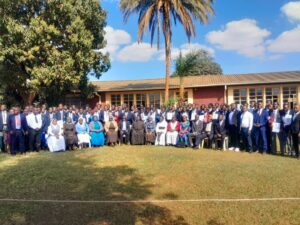Flood Relief Project Bears Fruit in Nkhotakota
The Catholic Development Commission of the Archdiocese of Lilongwe (CADECOM) has expressed satisfaction with the support it has provided to communities affected by floods at Senjere area in Nkhotakota District.
Speaking during a project visit to the area with Missio Austria, the project’s donor, the Secretary of the Commission, Madalitso Chilalire said that the initiative has made a big difference in people’s lives by helping them farm in more effective and sustainable ways.
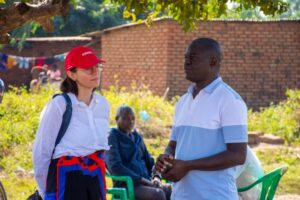
Chilalire is of the view that the heart of the project is agroecology, on which they encourage families to move from growing just one crop to planting a variety crop thereby providing food throughout the year and reduces their dependence on maize (Malawi’s staple food).
“So we are trying to work on the mindset of the people that they can have other food like sweet potato, cassava, fruits, like bananas that they can also use as carbohydrates as food to their households so that they should not only rely on maize which is nowadays becoming difficult to grow. So that is what we are doing in Madisi (Dowa) and in Nkhotakota and so far so good, the farmers are adopting.”
Based on the success so far, CADECOM is considering adding savings and loan groups to help families invest their income and strengthen their financial independence.
Chilalire said the organization hopes to expand this work with continued support from Missio Austria.
He says the commission “can also add other components to the project like savings and lending programs so that the people when they sell excess food that they have grown they are able to reinvest in the communities.”
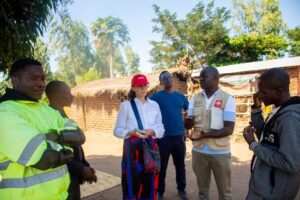
In her remarks, Lucia Bayer, a representative from Missio Austria, praised the project for combining food aid with long-term training and seed distribution.
“I am very grateful that this has been done not only as an exclusive food relief, but that it was combined with trainings on crop diversification and the seeds provision was also included, because now people have a good ground to build on,” Bayer said.
She said the results are encouraging and show that farmers are well-prepared to build a better future.
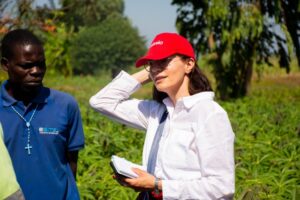
Bayer also emphasized the importance of introducing savings and loan programs to boost financial empowerment, encouraging the community to keep striving for more.
“I see that there is also room for more, because when they apply the principles of village savings and loans, the VSL or village banks, then they will be even more empowered.” She added.
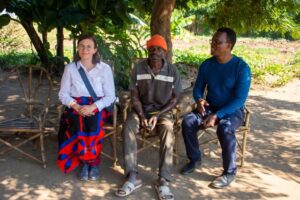
“ I would assume this is just the starting point and it can grow, because when they learn how to go about the money, how to save and invest, and they will have the possibility to take a loan within the village bank, I believe that is the way for them to go, because then they will experience even a greater empowerment,” she concluded.
One local farmer, Esau Banda, said that the CADECOM’s support has helped them improve their farming methods—especially by learning to grow more crops and plant fruit trees.
Banda credited the project with bringing real, positive change to their lives.
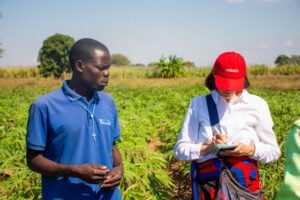
Launched in December 2024, the six-month project, funded by Missio Austria in response to a request from Archbishop George Tambala of the Catholic Archdiocese of Lilongwe, began by distributing food to families in need and it then shifted focus to building long-term skills through training in sustainable farming. The initiative has been operated at both Madisi Parish (Dowa) and St. Barnabas Parish (Nkhotakota) in Malawi.
By Eric Norman Mkwaira


